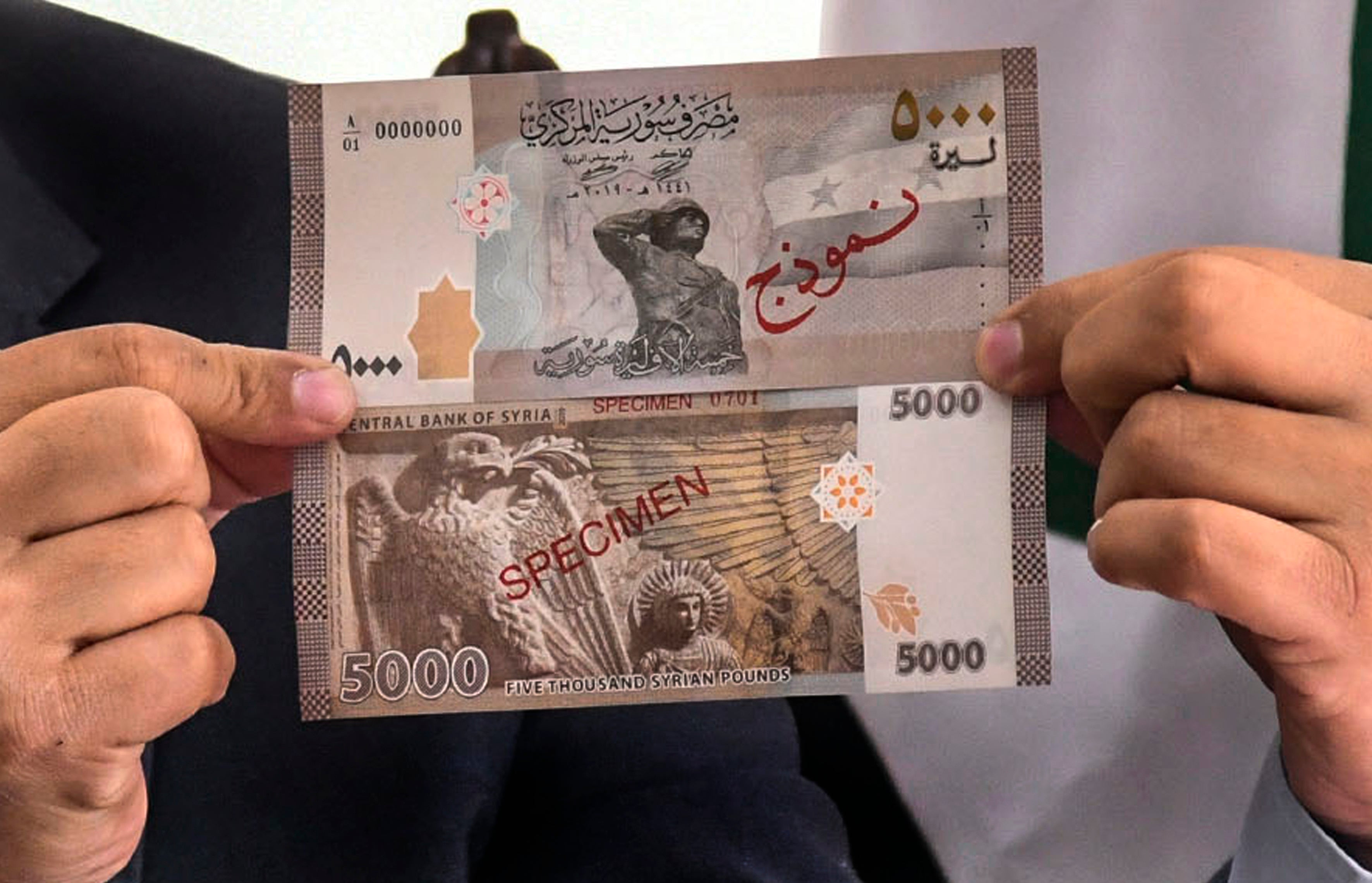Syrian pound hits record low as economic crisis worsens
The Syrian pound has hit a record low just days before the Arab country marks the 10th anniversary of a conflict that has left hundreds of thousands dead and large swaths destroyed

Your support helps us to tell the story
From reproductive rights to climate change to Big Tech, The Independent is on the ground when the story is developing. Whether it's investigating the financials of Elon Musk's pro-Trump PAC or producing our latest documentary, 'The A Word', which shines a light on the American women fighting for reproductive rights, we know how important it is to parse out the facts from the messaging.
At such a critical moment in US history, we need reporters on the ground. Your donation allows us to keep sending journalists to speak to both sides of the story.
The Independent is trusted by Americans across the entire political spectrum. And unlike many other quality news outlets, we choose not to lock Americans out of our reporting and analysis with paywalls. We believe quality journalism should be available to everyone, paid for by those who can afford it.
Your support makes all the difference.The Syrian pound hit a record low Wednesday just days before the Arab country marks the 10th anniversary of a conflict that has left hundreds of thousands dead and large swaths destroyed.
The U.S. dollar was trading on the black market at 4,000 pounds, increasing the misery of many Syrians who have been struggling to make ends meet with a sharp increase in commodity prices. The official price remains 1,256 Syrian pounds to the dollar.
At the start of the conflict in mid-March 2011, the U.S. dollar was worth 47 Syrian pounds.
Syria’s local currency has been hit hard by the war, corruption, Western sanctions and more recently a financial and economic collapse in neighboring Lebanon. Syrians are believed to have billions of dollars blocked in Lebanese banks that have imposed harsh capital controls since late 2019.
The average salary in Syria stands at about 90,000 pounds ($22.50) per month making it difficult for many Syrians to survive. With the crash of the local currency, prices at shops have been changing almost every day.
In January, a new, 5,000 Syrian pound bank note went into circulation, the largest denomination in the country. The Central Bank of Syria said the new bank note was issued “to meet the need of the market, facilitate cash transactions and reduce their costs.”
The United Nations estimates that nearly 80% of Syrians live under the poverty line. In recent months, fuel and wheat have been in short supply, driving the government to reduce subsidies and ration resources.